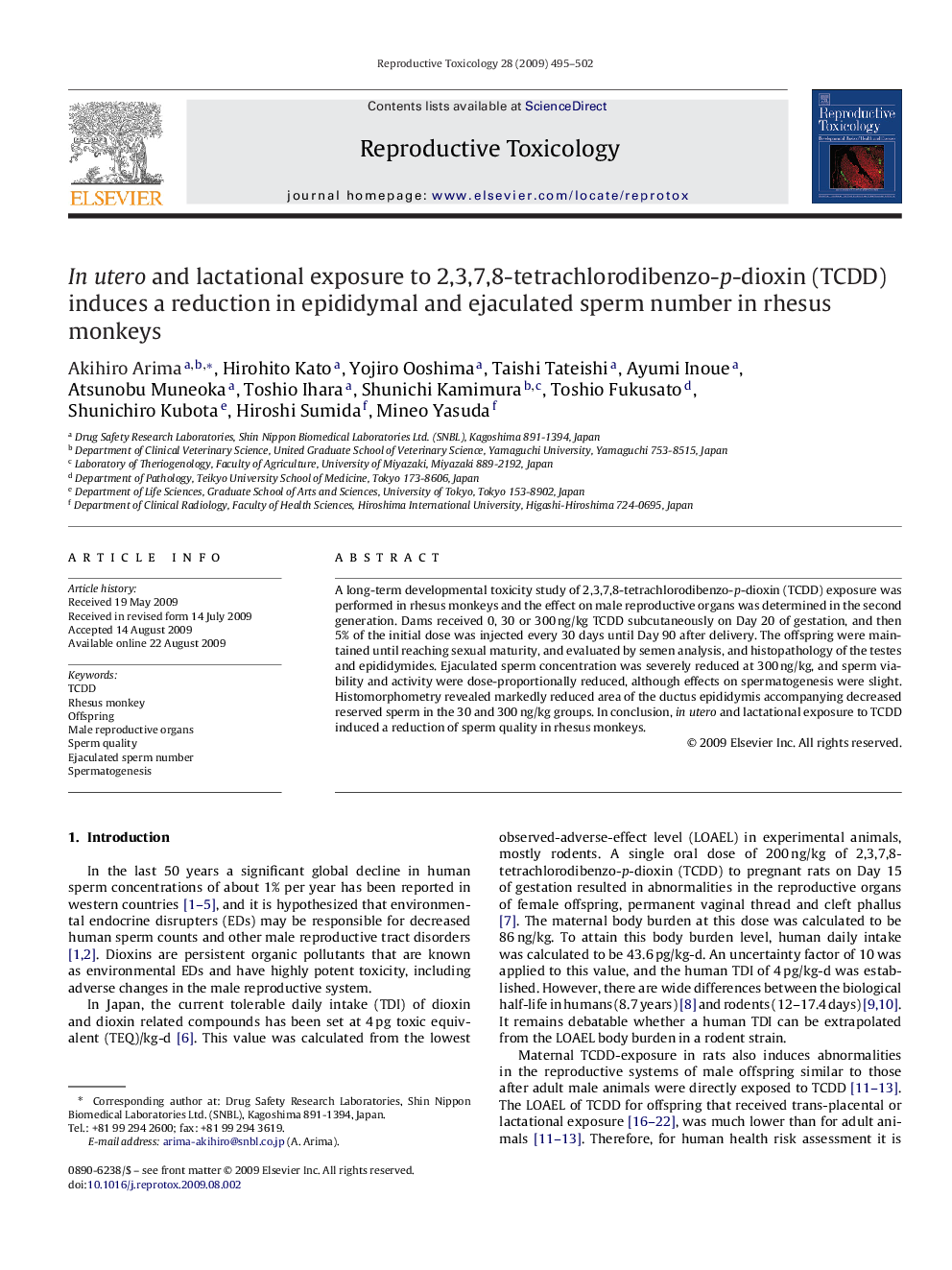| کد مقاله | کد نشریه | سال انتشار | مقاله انگلیسی | نسخه تمام متن |
|---|---|---|---|---|
| 2594416 | 1132268 | 2009 | 8 صفحه PDF | دانلود رایگان |

A long-term developmental toxicity study of 2,3,7,8-tetrachlorodibenzo-p-dioxin (TCDD) exposure was performed in rhesus monkeys and the effect on male reproductive organs was determined in the second generation. Dams received 0, 30 or 300 ng/kg TCDD subcutaneously on Day 20 of gestation, and then 5% of the initial dose was injected every 30 days until Day 90 after delivery. The offspring were maintained until reaching sexual maturity, and evaluated by semen analysis, and histopathology of the testes and epididymides. Ejaculated sperm concentration was severely reduced at 300 ng/kg, and sperm viability and activity were dose-proportionally reduced, although effects on spermatogenesis were slight. Histomorphometry revealed markedly reduced area of the ductus epididymis accompanying decreased reserved sperm in the 30 and 300 ng/kg groups. In conclusion, in utero and lactational exposure to TCDD induced a reduction of sperm quality in rhesus monkeys.
Journal: Reproductive Toxicology - Volume 28, Issue 4, December 2009, Pages 495–502